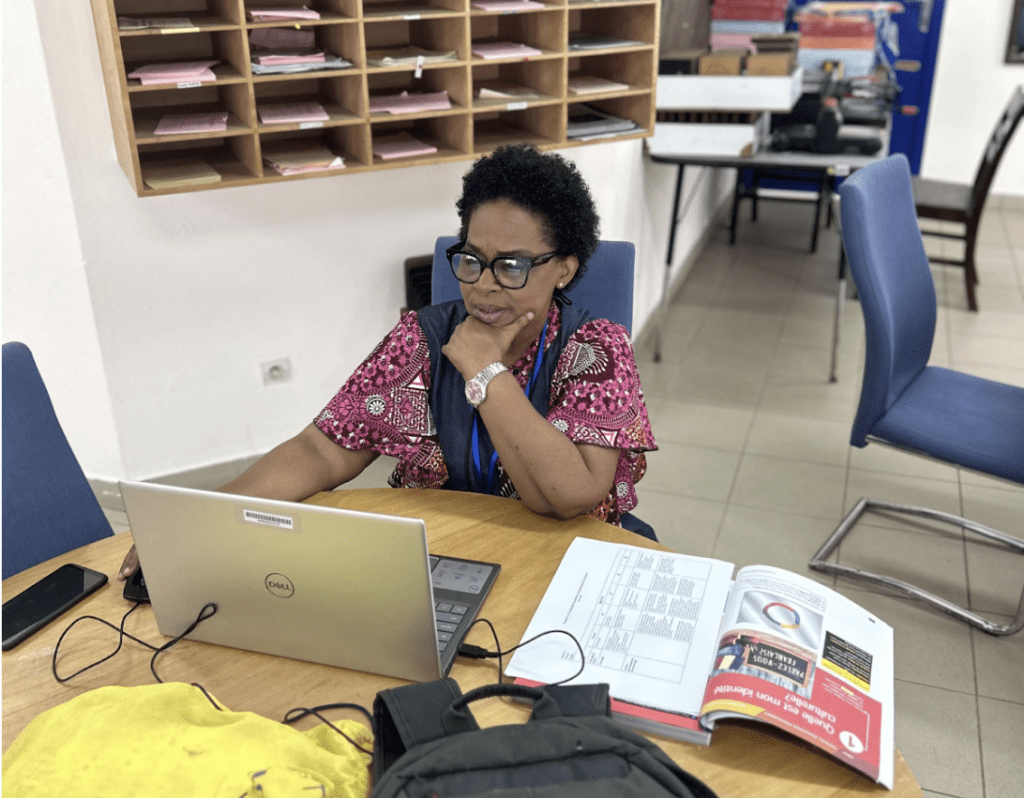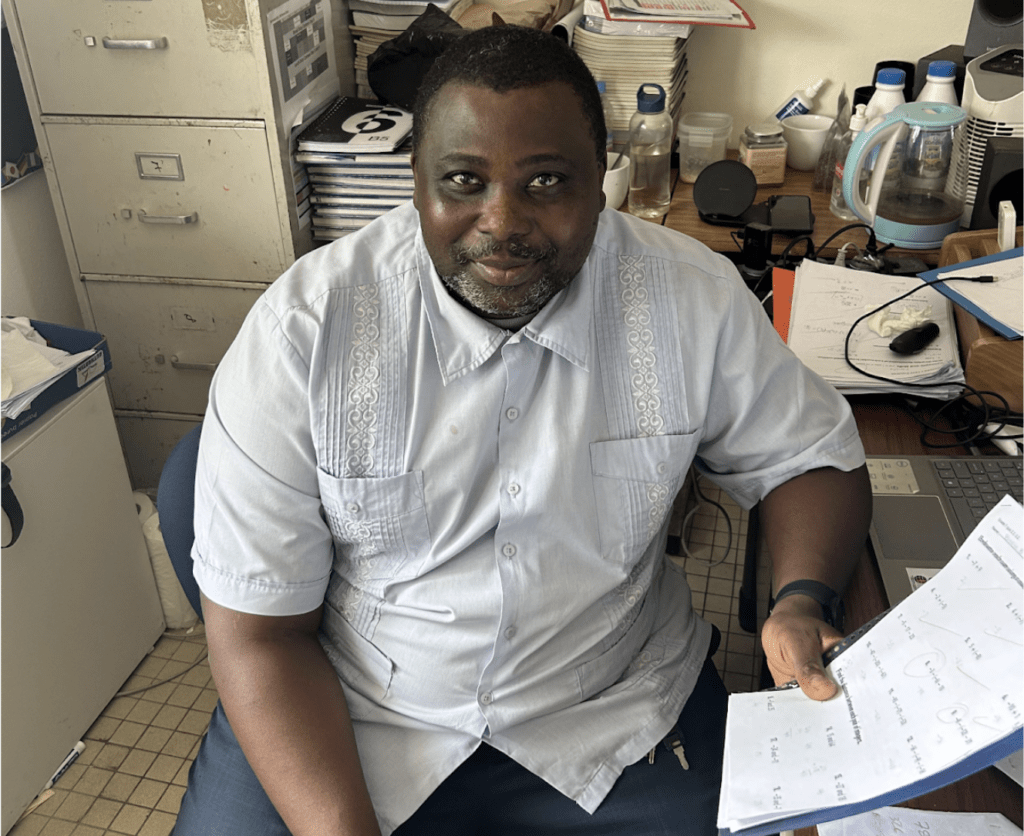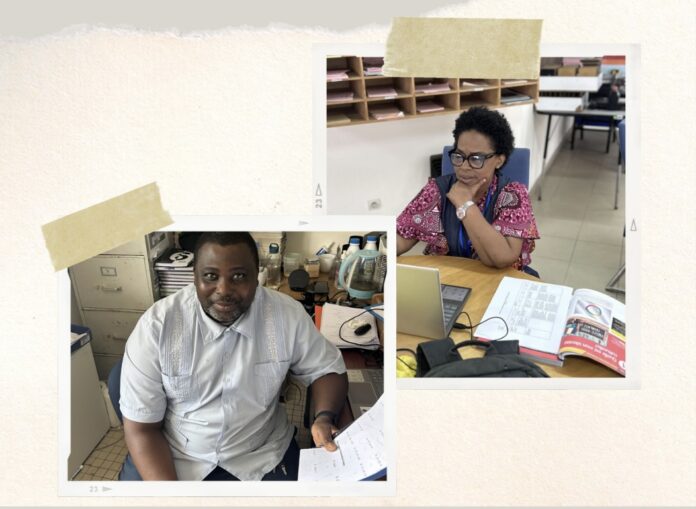Founded in 1972, ICSA had a different life then what it has now. Going through two civil wars (one from 2002-2007 and the other from 2010-2011), the school has gone through several changes. And while no staff has been here from the beginning, some have come close.
The two teachers interviewed have been here for years and were chosen because of how important they are to ICSA and its history.
Mme. Diakite is our adored upper school French teacher, and Mr. Namory is our beloved upper school math teacher, who even had kids of his own go to ICSA. Let’s look at their stories.
Madame Diakite’s Journey

Madam Diakite came to ICSA in 1998. Originally from Côte D’Ivoire, she taught at the Félix Houphouët-Boigny University before joining our community.
“I started [officially] teaching at ICSA in 1998, but in 2003 I had to leave because of the civil war. The school went from 550 students to less than 25.”
The civil war affected the school very negatively, as it caused a great loss of teachers and students. Many people left to escape the deadly war.
She came back in 2008 and resumed teaching, but in a different building due to the lack of students. The United Nations Operation (ONUCI) rented the current school due to the situation.
The lack of students was a bit demotivating, but she carried on. “I am someone that likes stability and I like my job,” she says.
Since 2014, things have been relatively smooth. The student population eventually went back to normal, the school went back to its previous campus, and Madame Diakite was able to keep doing what she loved: teaching.
A lot has changed since then, especially in the community. “The student population is much bigger, and the campus is bigger as well,” says Madame Diakite. Another thing she says is different is the way exams are done. “The exams went from Advanced Placement (exams to allow for university) to IB.”
Throughout all these changes and adversities, she kept teaching, and it does not look like she plans on stopping anytime soon. She loves her job, and she loves helping kids succeed. “I love seeing kids start from 0 and go to 100.”
Mr. Namory’s History

Mr. Namory’s story starts very similarly. Originally from Côte D’ivoire, he began his ICSA career as a teaching assistant in 1999.
He states that he wasn’t sure he wanted to be a teacher, but over time, he realized he enjoyed helping children improve in their studies. “I enjoy seeing kids happy because their grades improved,” he says.
First, Mr. Namory taught in the lower school, but now he teaches upper school math. He’s been here so long, some of his own kids went to ICSA, and even graduated here. During the civil war, unlike many teachers, he continued teaching, and has been consistently teaching since he started.
He says, “Do your job because you love it, not because of the pay, or else it won’t work out.”
Namory has noticed a lot of changes in the community, many of them similar to the ones of Madame Diakite. Mr. Namory thinks that the change is positive, and he hopes it continues.
“There have been a lot of changes in ICSA, especially in infrastructure, but what’s important isn’t infrastructure.. it’s the community, and our sense of community is something we should never lose.”
Learning from the past
These interviews really opened my eyes about ICSA’s history and the community that this school has built.
As ICSA students, it is sometimes easy to forget our school’s history, but it is important for us to know it. History shows us the growth of our community, and how much growth is possible in the future.
Their stories are important reminders that ICSA has been a community for very long and that it isn’t just a school, it’s a family.


